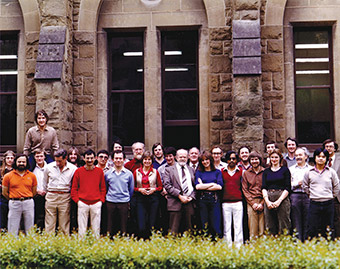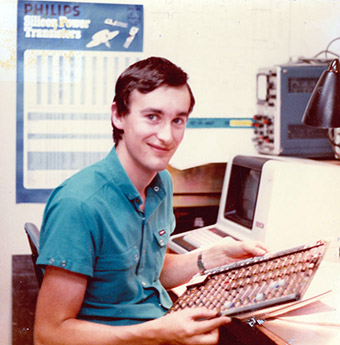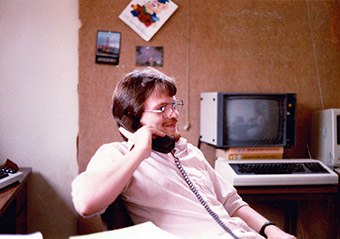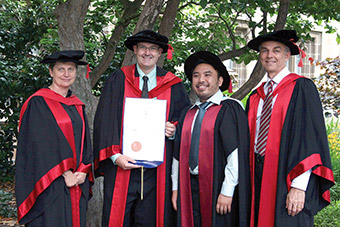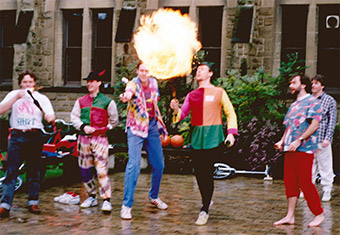Recollections of working in the Department include the pleasure of mentoring talented students and developing close working relationships with colleagues, the freedom to implement creative approaches to teaching and research, and the excitement of working on ground-breaking projects.
A common challenge was adapting to rapid change, as the Department constantly evolved.
The days working with CSIRAC were exciting, we had a sense of being at the beginning of something new which had a long way to go. There were virtually no demarcations based on rank, and every day was an adventure.
Kay Thorne
This is a department that has evolved to be more international in focus without forgetting its people, or without forgetting its traditions such as its love of the C language.
Tony Wirth
In 1999–2001 I was teaching brilliant undergraduate students many of whom I still see today both in Australia and overseas. Research has become first rate.
Brian Corbett
Joining the department meant that I could work with leading researchers, who were names that I read on publications, working in the department I got to know them.
Rachelle Bosua
I’ve worked with a lot of remarkable people. As a staff member I finally found a job that I (usually) like. Very few jobs are like this.
Greg Wadley
Not long after student fees were introduced we changed faculty, there was a complicated process we had to go through to alter the point values of our courses. I wrote a satirical play that a group of us performed.
Lee Naish
Excerpt from play:
Welcome to meeting 57 of the Points, Weights and Measures 2000 planning committee … Now, the minutes of the last meeting … did we take minutes? … We took hours.
Uniprocessors
The Uniprocessors were Department staff members who used juggling, unicycling and fire breathing to teach computing concepts in a playful way, and to attract students to the Computer Science course, during the late 1980s and early to mid 1990s.
The Uniprocessors started off as a bit of a joke. There used to be a lunchtime BBQ and honours student Review on the last Friday of the year, one year I had a lecture on algorithms and data structure at 3.15pm and it seemed a little inappropriate to have a serious lecture after that. A few of us in the Department did busking, so we demonstrated concepts with juggling.
Lee Naish
An excerpt from the lecture notes:
Why is juggling so popular amongst computer scientists? They are trying to solve the biggest open problem in theoretical comp sci — Does P = NP. If anyone can find a way to learn how to juggle N balls in polynomial time then the problem is solved. So if you see a computer science lecturer juggling — don’t disturb them — they are engaged in important research.
Lecture notes c.1997, Lee Naish
I busked in order to pay my way through University. What was surprising was how many computer scientists were (and are) jugglers. I suspect it’s tied to the recent discovery that juggling is one of the best things for neuroplasticity.
Peter Stuckey
I had seen the mountaineering club abseil down the Redmond Barry Building, sometimes in a silly way, like on roller skates, or naked. I brought along my unicycle and some extra climbing gear and convinced them to let me abseil on my unicycle. It didn’t really work very well, just long enough to get to the photo!
Lee Naish

